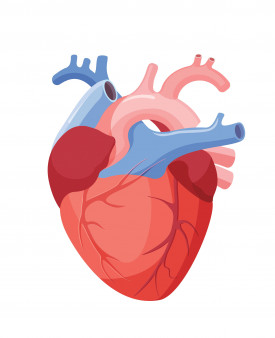People living with HIV are at greater risk for cardiovascular disease (CVD) compared with the general population, but managing risk factors can make a big difference.
Researchers at Kaiser Permanente Northern California analyzed CVD risk factors among people with and without HIV. In general, both groups had similar high levels of risk management. Overall, people with HIV had about a 20% higher risk for cardiovascular events. HIV-positive people with no traditional CVD risk factors still had more events than their HIV-negative counterparts, indicating that HIV-specific factors, such as inflammation, play a role. CVD risk was lessened in HIV-positive people with well-controlled blood lipid levels and diabetes, but their risk remained elevated despite well-controlled hypertension.
People with HIV may require CVD management at lower thresholds. An analysis from the REPRIEVE trial confirmed that a standard CVD risk calculation underestimates risk for people with HIV, especially women and Black people. REPRIEVE showed that a daily statin reduced the risk for heart attacks, strokes and other major cardiovascular events by 35% among HIV-positive people with low to moderate CVD risk, a group that ordinarily would not be prescribed statins. Based on these findings, the Department of Health and Human Services recently updated its guidelines to recommend statins for people with HIV ages 40 and older with low or intermediate CVD risk.
Another study conducted in Haiti showed that HIV-positive people with “prehypertension,” or blood pressure slightly above the normal range, were 57% less likely to develop hypertension if they received early treatment with a calcium channel blocker. Lowering the threshold for antihypertensive treatment for people living with HIV “may be an important tool for cardiovascular disease prevention,” says Lily Yan, MD, of Weill Cornell Medicine.







Comments
Comments